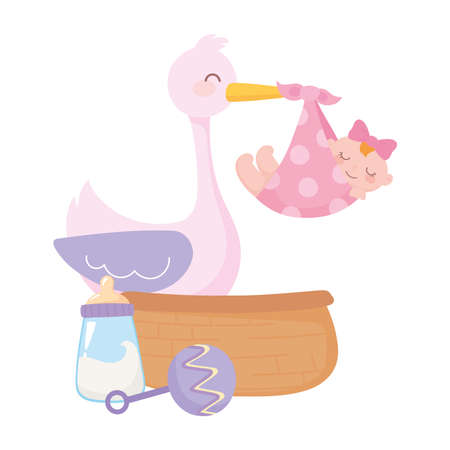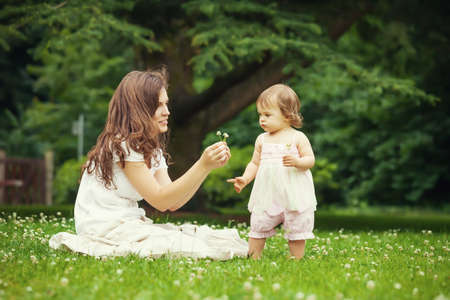Understanding Speech Development Milestones
Speech and language development is a crucial part of your baby’s early years, and understanding the typical milestones can help British parents spot potential delays early on. In the UK, health visitors and paediatricians commonly refer to certain age-specific expectations for babies up to two years old. While every child develops at their own pace, the following table outlines key speech and language milestones, helping you recognise what is generally expected at each stage.
| Age | Typical Speech & Language Milestones (UK) |
|---|---|
| 0-6 months | Responds to sounds; coos and makes pleasure sounds; turns towards familiar voices |
| 6-12 months | Babbles using a variety of sounds; recognises their name; understands simple words like “bye-bye” |
| 12-18 months | Says first words such as “mummy” or “daddy”; follows simple instructions; points to objects when named |
| 18-24 months | Uses 20-50 words; combines two words (“more milk”); starts to ask simple questions (“what’s that?”) |
It’s important to remember these are general guidelines, not strict rules. Variations are common, but if your child is missing several milestones or you have concerns about their progress, it’s sensible to seek advice from your GP or local health visitor. Early support in the UK can make a significant difference to children with speech and language delays.
2. Common Speech Delays Observed in British Babies
Speech and language development can vary widely among infants, but certain types of delays are more commonly observed by British health professionals. Recognising these early on can help parents seek timely support. Below is an outline of frequent speech delays, along with real-life examples and terminology you might hear from your local Health Visitor or NHS speech and language therapist.
Types of Speech Delays
| Type of Delay | Description | Common UK Terms | Example |
|---|---|---|---|
| Expressive Language Delay | The child struggles to use words, sentences, or gestures to communicate wants and needs. | “Late talker”, “expressive delay” | A 2-year-old who uses fewer than 50 words or doesn’t combine words (e.g., only says “milk” instead of “want milk”). |
| Receptive Language Delay | Difficulties understanding what others say; may not follow simple instructions. | “Comprehension issues”, “receptive delay” | A baby not responding to their name or simple requests like “give me the ball” by 18 months. |
| Mixed Expressive-Receptive Delay | Trouble both expressing themselves and understanding language. | “Global language delay” | A toddler who rarely speaks and often seems confused when spoken to, even with familiar routines. |
| Speech Sound Disorder | Trouble pronouncing certain sounds correctly for their age. | “Articulation disorder”, “phonological delay” | A 3-year-old who replaces k with t (saying “tat” instead of “cat”). |
What Parents Might Hear from British Health Professionals
- “Developmental norms”: Refers to typical milestones British babies are expected to reach at certain ages.
- “Referral to SALT”: Suggestion to see a Speech and Language Therapist (SALT) through the NHS or private sector.
- “Watchful waiting”: Monitoring progress before deciding on intervention, sometimes recommended if a mild delay is suspected.
- “Early Years Foundation Stage (EYFS)”: Framework used in nurseries and preschools for tracking communication skills in the UK.
Real-life Example: Parent Experience in the UK
Sophie, a mum from Manchester, noticed her son George wasn’t using two-word phrases by age 2. After discussing concerns with her Health Visitor during a routine check, she was reassured that “some children take a bit longer.” However, since George also struggled to follow instructions at his nursery, he was referred to an NHS SALT for assessment. This collaborative approach is common across the UK, ensuring families receive tailored advice based on local guidelines.

3. Possible Causes of Speech Delays
Understanding why some babies in the UK experience speech delays is crucial for early intervention and support. Several factors may contribute to these delays, and being aware of them helps British parents make informed decisions about their childs development. Below, we explore some common causes specific to the UK context:
Hearing Issues
Undiagnosed hearing problems are a frequent cause of speech delays among infants. The NHS routinely offers newborn hearing screening, but conditions such as glue ear—common during the colder months in Britain—can develop later and impact a child’s ability to hear sounds clearly. Regular hearing checks are recommended if you notice your baby is slow to babble or respond to noises.
Bilingual Households
The UK is increasingly multicultural, with many families raising children in bilingual environments. While exposure to more than one language has long-term cognitive benefits, it can sometimes cause temporary delays as children learn to distinguish between languages. This is normal and usually resolves by school age, but parents should monitor overall communication progress rather than focusing solely on spoken words.
Early Childhood Development Environments
The environment in which a child grows up plays a significant role in their speech development. Factors such as limited interaction, reduced exposure to books or songs, and less time spent engaging in conversation can all contribute to delayed speech milestones. British research also highlights the impact of increased screen time versus traditional play and face-to-face interaction.
Summary of Common Contributing Factors in the UK
| Factor | Description | UK-Specific Considerations |
|---|---|---|
| Hearing Issues | Temporary or permanent hearing loss affects sound recognition and speech imitation. | NHS screenings are standard; glue ear prevalence increases in colder climates. |
| Bilingual Households | Exposure to multiple languages may slow initial speech but benefits long-term learning. | Multicultural communities; support available via local authority resources. |
| Developmental Environment | Lack of verbal stimulation or interaction can hinder language acquisition. | Cultural trends towards increased screen time; importance of interactive play emphasised by UK health visitors. |
Key Takeaway for British Parents
If you are concerned about your child’s speech development, consider these factors and consult with your GP or health visitor. Early identification and tailored support are essential for helping children thrive within the unique context of British family life.
4. When Should British Parents Be Concerned?
Its natural for parents to wonder if their childs speech development is on track, especially when comparing with peers at playgroups or nursery. However, every child develops at their own pace. Still, there are certain signs and milestones that can help you decide when its appropriate to seek advice.
Guidance on When to Seek Advice
The NHS recommends that parents monitor a childs progress and consult a health visitor or GP if there are concerns. Early intervention can make a significant difference. Here’s a helpful guide:
Age |
Typical Milestones |
When to Seek Advice |
|---|---|---|
| 12 months | Babbling, making sounds, responding to simple words like “no” or “bye-bye” | No babbling or attempts to communicate; doesnt respond to sounds |
| 18 months | Saying 6–20 recognisable words; uses gestures like pointing or waving | No clear words; limited gestures; doesnt attempt to mimic sounds |
| 2 years | Puts two words together (e.g., “more milk”); follows simple instructions | Not putting words together; hard to understand even for family; no interest in communicating |
| 3 years | Speaks in short sentences; understood by familiar adults most of the time | Speech mostly unclear; rarely speaks without prompting; avoids interaction with others |
NHS Approach to Early Assessment and Support
If you notice any of the above signs, the NHS encourages making an appointment with your GP or health visitor. They may refer your child for further assessment by a speech and language therapist (SLT). In most areas across the UK, this support is available through the NHS at no cost. The process typically involves:
- Initial Screening: Discussion of your concerns and observation of your childs communication skills.
- Developmental History: Review of birth history, hearing, and family background.
- Further Assessment: Formal evaluation by an SLT if needed.
- Support Plan: Tailored advice, activities, or therapy sessions based on your child’s needs.
Remember: Early identification and support can help children overcome speech delays and reach their full potential. If in doubt, it’s always best to have a chat with your local health professional.
5. Practical Tips for Supporting Your Baby at Home
Supporting your baby’s speech development doesn’t need to be complicated or expensive. Many British families find that weaving simple, culturally relevant routines into everyday life can make a real difference. Here are some practical tips and activities you can try at home:
Read Together Daily
Reading is a cornerstone of early speech development in the UK. Choose books with repetitive phrases, rhymes, and bright pictures. Some classic British recommendations include:
| Book Title | Author | Why It’s Great |
|---|---|---|
| The Gruffalo | Julia Donaldson | Engaging rhymes and memorable characters encourage imitation and listening skills. |
| Peepo! | Janet & Allan Ahlberg | Simple language and familiar British settings provide comfort and context for babies. |
| Each Peach Pear Plum | Janet & Allan Ahlberg | Repetitive text supports word recognition and anticipation. |
Talk About Everyday Life
Narrate your daily activities—whether you’re making a cup of tea, popping to Tesco, or putting on wellies before heading out in the rain. Use clear, simple sentences and repeat key words often. This helps build vocabulary in familiar British contexts.
Create Opportunities for Conversation
Even if your baby isn’t speaking yet, pause during play or reading to give them a chance to respond with sounds, gestures, or eye contact. Ask open-ended questions like “What do you see?” or “Shall we turn the page?” Remember to praise all attempts at communication.
Singing Nursery Rhymes and Songs
Traditional British nursery rhymes such as “Twinkle Twinkle Little Star”, “Wind the Bobbin Up”, or “Incy Wincy Spider” are perfect for encouraging rhythm, memory, and word learning. Singing together also strengthens your bond.
Include Speech Practice in Daily Routines
| Routine | Speech Activity Example |
|---|---|
| Bath time | Name body parts (“Let’s wash your toes!”) or sing bath-time songs. |
| Mealtimes | Name foods, describe tastes (“Yummy porridge!”), or talk about colours (“Your peas are so green!”). |
| Walks/Outings | Point out buses, birds, or postboxes; describe what you see (“Look at the red bus!”). |
| Tidy-up Time | Name toys as you put them away (“Here goes teddy in the basket.”). |
Avoid Screens Where Possible
The NHS recommends limiting screen time for babies under two. Instead, focus on face-to-face interaction—babbling back and forth is one of the best ways to nurture speech development naturally.
If You’re Worried, Seek Support Early
If you have concerns about your child’s speech progress, don’t hesitate to reach out to your health visitor or local children’s centre. The earlier you seek support, the better equipped you’ll be to help your child thrive.
6. Navigating Support Services in the UK
If you suspect your baby may be experiencing speech delays, there are a range of support services available across the UK to help both you and your child. The National Health Service (NHS) is the primary port of call for most British families, offering guidance, assessments, and referrals to specialists when needed.
Key NHS Services
Your first step should usually be speaking with your GP or health visitor. They can assess your child’s development and refer you to a Speech and Language Therapist (SLT) if appropriate. SLTs are trained professionals who work with children experiencing communication difficulties, providing tailored therapy and practical strategies.
| Service | Description | How to Access |
|---|---|---|
| NHS Speech and Language Therapy | Assessment and therapy for children with speech or language delays. | Referral through GP or health visitor. |
| Health Visitor Service | Regular developmental checks and parental support. | Automatically provided for babies under 5; contact local NHS trust for appointments. |
| Early Years SEND Support | Special Educational Needs and Disabilities support in nurseries and pre-schools. | Ask nursery staff or local council’s SEND team. |
Community Resources & Helplines
Beyond NHS provision, parents can access additional support through local community groups, charities, and helplines. Many areas have parent-led playgroups focused on early years communication, as well as workshops run by charities such as ICAN or The Communication Trust. These organisations offer practical advice, online resources, and sometimes direct speech therapy sessions at a reduced cost or free of charge.
Helpful Contacts for British Parents
- NHS 111: For non-emergency medical advice any time of day.
- I CAN Help Enquiry Service: Specialises in children’s communication issues (ican.org.uk).
- The Communication Trust: Online resources for families (thecommunicationtrust.org.uk).
- Mumsnet Local Talk: Connect with other parents facing similar challenges in your area (mumsnet.com/local-talk).
- Family Information Service: Each council provides information about local services for children with additional needs.
Tips for Making the Most of Support Services
- Keep records of concerns and milestones to share with professionals.
- Don’t hesitate to ask questions—services are there to support you.
- If waiting lists are long, explore community groups or online resources in the meantime.
- Stay engaged with your child’s nursery or school SENCO (Special Educational Needs Coordinator) if they attend one.
The journey through speech delay can feel daunting, but British parents are not alone. With accessible NHS services, supportive community groups, and dedicated helplines, help is available every step of the way to ensure your child gets the best possible start in communication development.


